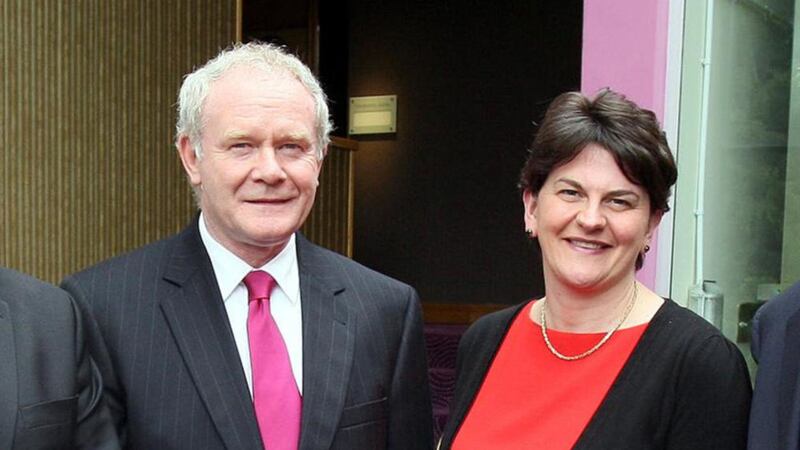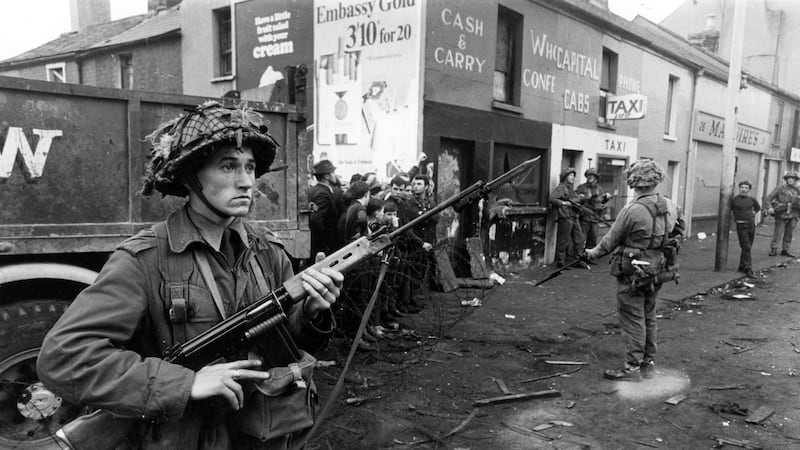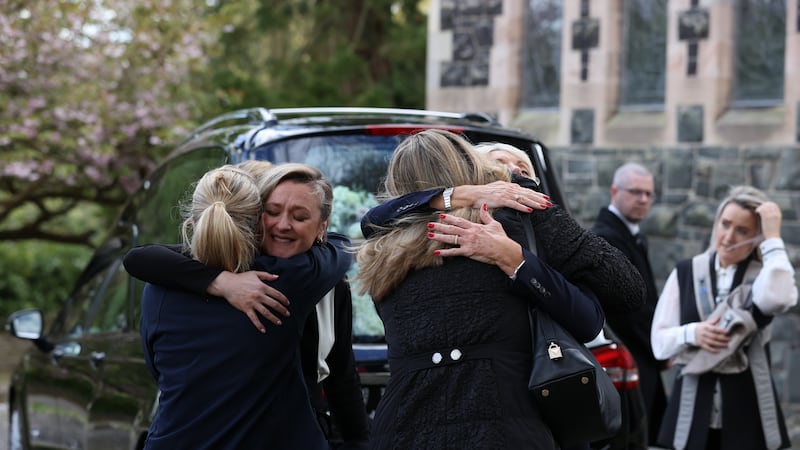No one should have been surprised that the office of first minister and deputy first minister would have received briefings from its European Policy and Co-ordination Unit (EPCU) re the potential impact of the UK voting to leave the EU - unlikely though that outcome would have seemed in May 2015, when the paper was being prepared.
And nor should anyone have been surprised that the briefing wasn't made public at the time. That's the nature of these briefings; they're intended for internal consumption only, merely offering advice and pointing out the possible consequences if the electorate voted one way rather than the other.
The SDLP, UUP and Alliance have been complaining that they weren't shown the Brexit briefing paper, but I don't understand their faux surprise. They spent most of the time they were in the last executive complaining that they were ignored, sidelined and kept in the dark by the 'DUP/SF axis' on just about every major issue. So they can't actually have been surprised about not being shown this particular paper.
I wonder, by the way, if any SDLP/UUP/Alliance member of the assembly's OFMDFM committee - which monitors and scrutinises that particular department - inquired if EPCU had been tasked to examine the impact of a Brexit decision? The fact that it required Steven McCaffery of The Detail to expose the existence of the briefing paper suggests that there wasn't a paper trail from the OFMDFM committee to EPCU on this issue.
What was genuinely surprising, though, was the fact that Sinn Féin chose not to embarrass the DUP before, during or even after the referendum, by leaking the contents of the Brexit paper. OK, the DUP would have known they had leaked it, but that wouldn't have mattered because the contents would have made it very difficult for the DUP to stand over their decision to campaign on the Leave side.
What the non-leaking tells us is that the Foster/McGuinness rapprochement - very much in evidence from the moment she replaced Peter Robinson as leader and first minister - is the centrepiece of the DUP/SF relationship. And that rapprochement became even more important when they found 'themselves alone' in the executive after an assembly election in which the UUP and SDLP did badly and decided to lick their wounds in opposition. In other words, it's no longer in the interests of either Foster or McGuinness to inflict political damage on each other. They need each other more than ever. If their relationship collapses then so, too, does the executive.
Mind you, none of this will stop McGuinness from enjoying the embarrassment that the DUP is probably experiencing. He can hide behind the position that 'protocol' prevents papers being put in the public domain unless the DUP and SF jointly agree; although I'm pretty sure that there isn't a protocol which allows them to hide papers from other executive parties. He will also be enjoying the sight of the DUP's economy minister Simon Hamilton (he was also still minister of finance at around the same time as EPCU was working on the Brexit briefing paper in the Spring of 2015) squirming, as he refuses to answer the question about how he voted in the referendum. If Hamilton voted Leave then he did so against a background of a briefing paper (and I'm assuming that DUP ministers would have seen it - because it's a huge story if they didn't see it) that suggested that Leaving was a bad idea. If he voted Remain then he voted against DUP policy. Either way, he won't be keen to answer and will be hoping that journalists will just stop asking. Not for a while, Simon, not for a while.
It's the sort of story that an organised, coherent, effective opposition should have been stomping all over when it broke on Monday: the sort of story that should have had the DUP and SF reeling from blow after blow. Sadly, it probably doesn't matter to the general public, particularly since the DUP and SF, as they've been doing with Nama, David Gordon and a host of other things, are choosing to stand together and provide cover for each other. Additionally, the SDLP and UUP wasted their first opposition day on Monday, failing to focus on issues that resonate outside the chamber (where voters might be paying attention) let alone inside the chamber (where nobody, including most of their own MLAs, was listening).
The opposition need to present themselves as a joint alternative to the DUP/SF axis, complete with their own Programme for Government. But my sense is that too many people and interest groups outside the assembly are already writing them off.
They really do need to get their act together; because, when the main talking points are about Colum Eastwood's new beard and Mike Nesbitt's fondness for quoting Dickens, they should realise that something is wrong.








